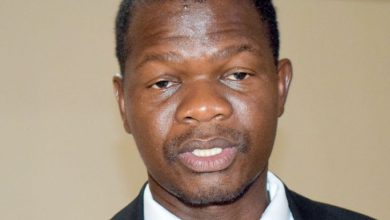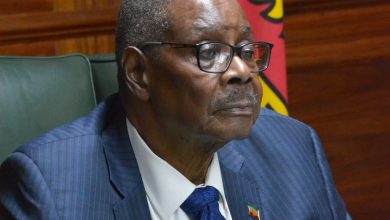Eyebrows over joint venture
Questions are being asked about a joint venture agreement called GBI Greenhouse Ltd (GGL) signed in January 2019 between the Government of Malawi, through Greenbelt Initiative Holdings Limited (GBIHL) and Inosselia Agro Africa Limited for a high-value vegetable farm project in Lumbadzi, Dowa.
A source close to the firm said the agreement has several grey areas which include lack of a specified repayment period for a loan of over $6 million the government guaranteed, the basis for the majority shareholding by the Israeli company despite government providing land and issuing guarantees, and the uncertainty about whether or not the company has started repaying the loan.

A copy of the agreement, which we have seen, was signed on behalf of the government by former GBIHL chairperson Lloyd Muhara and former Greenbelt Authority (GBA) chief executive officer Henri Njoloma while Inosselia Agro Africa Limited director Gil Rozen and lawyer Noava Cathene signed on behalf of the firm.
It shows that the Israeli firm holds a 51 percent stake in the firm for the initial investment it made by conducting feasibility studies on the initiative and technical support.
On the other hand, the Government of Malawi has 49 percent shares in the firm through the $5.6 million loan, provision of land, infrastructure and technical expertise.
The Government of Malawi also provides subsidies, tax incentives, and support through the Malawi Growth and Development Strategy.
However, an agenda and position paper for a meeting between GBA officials and the Israeli company’s representatives, which Weekend Nation has seen and was scheduled for August 2023, demanded that the company submit financial statements since its establishment.
The paper said the Israeli firm’s role was to provide technical expertise in running the venture and to capacitate local staff through on-the-job training and research and development.
It further states that the Israeli company signed a seven-year management agreement with GGL under which Inosselia is required to produce 3 200 metric tonnes of vegetables worth $8.2 million using drip irrigation and prepare medium which guarantees production quantities and quality, thereby substituting imported vegetables in Malawian supermarkets.
It reads: “An initial injection of K2.5 billion was made in March 2019. As per Article 4.1.3 of the paper, the GBIHL loan was to be repaid in full prior to the distribution of any dividends by the company. A report should be submitted detailing the extent to which the shareholders’ loan was serviced and projections for future repayments.”
According to the paper, the plan was to create 2 000 jobs, both permanent and seasonal, and to build capacity for locals.
It reads: “The anticipation was for the project to attract additional funding for the development of subsequent projects earmarked for the Northern Region in Nkhata Bay and in Neno in the Southern Region. Management should detail any efforts being made towards the fruition of these plans.
“A feasibility study was also to be conducted for the possible cultivation of sweet potatoes at Gada Farms in Mchinji. The company should be requested to present any report on progress.”
A senior official at GBA confided in this reporter that since GBA started demanding meetings with representatives of Inosselia Agro Africa Limited to follow up on progress, they have been evading the meetings.
GBA chief executive officer Eric Chidzungu said in a written response that after breaking even last year, the firm was “in the process of making profits and would start paying dividends to government in 2025”.
He also said the company is still in the first phase and has not contracted new loans, adding that Inosselia is supposed to settle the loan by December 2024, saying the authority is pursuing the partner to adhere to the agreed timeframe.
On why the Israeli firm has majority shareholding, Chidzungu said: “Government cannot be a majority shareholder in a joint venture company where the other shareholder is a private entity. This is the only reason government’s shares stood at 49 percent.”
In an interview on Tuesday, Attorney General (AG) Thabo Chakaka-Nyirenda said his office is reviewing the arrangement.
He said: “My office is reviewing this arrangement to ascertain legal compliance, including whether the arrangement, the loans, and government guarantees are in the economic interest and welfare of the country.”
Efforts to get comments from both Muhara and Njoloma proved futile as they could not be reached on their mobile phones.
GGL project manager Eric Gorelik said he would not respond to our inquiries because he was out of the country, saying some of our inquiries require detailed answers and some information sourced from other parties.
Investment expert and former Public Private Partnership director general Jimmy Lipunga while not directly commenting on the said grey areas, because he had not seen the agreement, among other issues, said government can be involved in a project through a joint venture arrangement in which it assumes shareholding and, therefore, shares in the embedded inherent business risks.
He said: “It is not unusual for parties to a joint venture agreement to not only take equity but also provide debt financing. The shareholders’ agreement will stipulate this.
“In a joint venture agreement, one would want to understand the terms and their justification. It is extremely rare for government to guarantee debts due to the onerous requirements of the Public Finance Management Act and the possibility of involving Parliament.”
However, Lipunga said if this is done, there must be a corresponding benefit to the public as consideration for the contingent liability and risks assumed by government.
“Due to the exposure to the public, a thorough feasibility analysis and business plan are essential as this provides the financing engineering architecture of the business,” he said.
Lipunga said in the other arrangement—the public private partnership arrangement—government is not necessarily a shareholder. “Government simply contracts a private party to finance and develop infrastructure. It is the responsibility of the private party through a special purpose vehicle to raise capital on the market. The financing is justified by future cash streams.”
In December 2020, President Lazarus Chakwera visited the GGL farm to appreciate new methods and technologies the firm is using to produce export quality vegetables.





